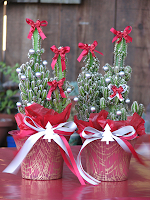That title is pretty fatalistic, isn't it?
Well, to water movement, it kind of is.
Everyone has heard of urbanization, everyone knows what it is: it's everywhere! However, something that isn't frequently talked about is how urbanization changes the water cycle. Believe it or not, urbanization has lots of repercussions for the water (or hydrologic) cycle.
First, check out this drawing:
This is a normal hydrologic cycle. It rains, some water gets
intercepted by leaves (for life functions like photosynthesis, etc), some goes directly into
streams, and some
infiltrates into the ground (it moves through the soil and into the water table, also known as the groundwater). Eventually the infiltrated water
runs off into streams, where it
evaporates and is sent back to the beginning.
This is a pretty picture. The grass, trees, and underground reservoirs (seen on the right, where the rocks are) get plenty of water, and the streams are full.
Now imagine the trees are cut down and the grass razed over to make room for a road, a subdivision, and sewer systems. This is pretty standard, pretty necessary: we need places to live, right? We're a little past living in tents and treehouses (as cool as it would be to have a
Swiss Family Robinson house). What happens though, when we remove the trees and ground cover is that the soil (where
infiltration happens) is no longer held in place. This leads to erosion, which we've all heard about before. Eroded soils end up soiling (pun intended) our stream water, which lowers water quality. More importantly, the loss of topsoil, trees, and ground cover (and replacing them with impermeable surfaces) decreases the volume of water getting into the ground. Instead, that water goes directly into
runoff: into our streams.
The next step in urbanization is building septic systems, wells, and diverting streams into areas to meet the water needs of the people. These activities will further the issue of runoff, plus septic systems will dirty our stream water. Moreover, drilling wells for personal use will alter the underground water level (
water table) which can cause the reservoirs I mentioned earlier to lose water.
Bottom line with urbanization:
more runoff.
What does that have to do with flooding?
Remember how in a natural system, the rain does several things: 1) infiltrates into the ground, 2) gets intercepted by plant leaves, 3) fills the underground reservoirs, and then 4) runs into streams?
Well, in a concrete forest the rain 1) can't get into the ground through the concrete, 2) doesn't have plants to take it, 3) can't get into the underground reservoirs, so it just 4) runs into the streams.
But, the streams aren't used to so much water filling them at once. The streams might see that volume of water over time, but it slowly moves into the streams, instead of all rushing into them at once. The highest amount of water entering a stream after a storm (
peak discharge) is
significantly higher in an urban setting than in a natural setting. The streams just can't handle it, so they overflow. You get a week of heavy rain in an urban area, and you have a flood!
So, the question is now: "what, are we supposed to go back to tents and tree houses and walking and no roads?" I think that answer is a resounding "No." It is an impractical solution...it won't happen.
We have to do the best we can with what we have (in all of life, really).
The United States Geological Survey (where I found this information) has a
page with some suggestions on how we can, as an urban society, help keep our waters clean.
As a whole, urban societies can:
1) improve urban drainage to slow runoff
2) drill wells specifically to recharge underground reservoirs
3) create ponds to slow runoff and increase infiltration
4) possibly look into reusing waste water
As an individual,
you can:
1) keep litter out of gutters and storm drains (remember, these go
directly to our streams!)
2)
not wash hazardous oils and liquids (like antifreeze, brake fluid, car oil, paints, etc) off the street, but clean it up and dispose of it in a hazardous waste collection area.
3) follow directions for your fertilizers: don't use too much, and try to avoid those with Phosphorous
4) try to avoid adding impervious surfaces (concrete and asphalt), and be sure to keep your yard covered in grass or another ground cover
5) keep your septic system clean! Having it checked and emptied every 3-5 years will reduce the leakage into our water system.
I know the title might have seemed a little fatalistic at the beginning, but it all makes sense now. Floods are a part of the natural water cycle, but the flooding frequency has changed with the increase in concrete forests.
Just something to think about the next time you pass a storm drain.
Annaliese Ashley-Intern




















